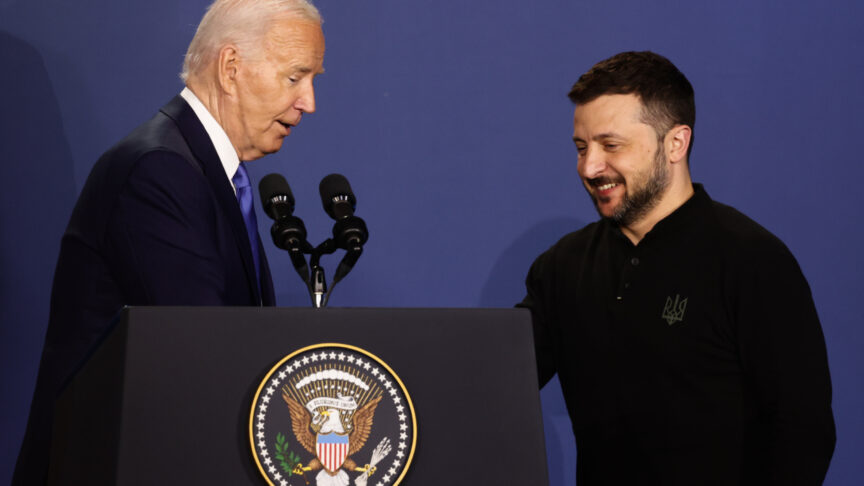Uncle EU Needs You
Europe should set up a reserve corps of 5 000 trained and equipped civilian specialists ready to be deployed to help in fragile, failing and post-conflict states
In today’s’ interconnected world, it is clearly in the EU’s interest to help fragile, failing and post-conflict states. For these states affect not only the lives of their inhabitants – according to the World Bank 870 million people or 14% of the world’s population – they also touch the lives of Europeans by creating refugee flows, or serving as hideouts for terrorists, and as transit-points for the smuggling of illegal goods and people. Helping these countries tip the balance away from blood-letting towards peace is an obvious national security priority.
Success in dealing with fragile, failing and post-conflict states means getting the right people, with the right skills, on the ground quickly to support local governments – from community policing, to setting up court systems and public administration, to rebuilding infrastructure, to getting schools and health clinics back up and running.
Acknowledging this, right now in Iraq and Afghanistan scores of civilians are working in Provincial Reconstruction Teams, known as PRTs, civilian-military organizations created to support the development of provincial governments. A typical day in the UK-run PRT in Basra has the staff assisting the local Council in drafting its Provincial Development Plan and first annual budget, training judges in the Iraqi law, overseeing the refurbishment of Basra’s airport, supporting the Provincial Council’s outreach to vulnerable communities – to take care of their needs – as well as establishing its links to Baghdad. PRT staff took the representative of 10.000 tomato farmers – once an important economic sector in southern Iraq – on a tour –to Kuwait to highlight the many trade barriers that still existed between the two countries.
Unmet Commitments
But getting civilian into existing PRTs and to staff future post-conflict missions lags behind requirements. Despite a long string of EU commitments beginning with decision at the Feira (1999) and Gothenburg (2001) Councils to develop the civilian element of ESDP, the EU is still under-equipped to undertake civilian crisis management and deploy personnel. 5.000 police officers pledged by European countries exist on paper, as do 200 post-conflict specialists, but it is unclear how real these commitments are in practice. For these people are volunteers. They work their day-jobs in courts and police stations and before they deploy they have to decide – and gain agreement from their superiors – to take time off from their careers. Few incentives exist for superiors, for example chiefs of police, to release their personnel to serve in foreign countries when requirements at home are as high as always. Doing so can be politically fraught. Tax-payers first and foremost want services in their communities. There is not necessarily a tension between fulfilling domestic and international needs – but it can easily look that way.
As things stand, the EU relies on experts loaned from its Member States or for the European Commission to use contractors. But few states, like the UK and Germany, have developed formal systems to identify, train and deploy experts. Most rely on hand-written lists; the same, small numbers of people are sent to various countries. Even when European countries identify the requisite staff, most arrive in theatre with little training, and no common procedures. There is no common EU curriculum for training. Contracting, in turn, takes a long time and means that the EU never builds in-house expertise in some of the key areas like election-monitoring, institution-building, and judicial reform.
There is clearly a need to reach out to the broader civilian community and pull in a wide range of skills and personnel to assist the EU to tackle its new challenges. But European states are unlikely to fund the creation of a standing European capability. Fears of a “European Army” are already pronounced in some countries like Britain. How then can the EU create a corps of civilian professionals, pre-identified, recruited, trained in advance, exercised regularly, and ready to work in hostile environments?
A European Civilian Reserve
The solution: EuroCorps, a reserve corps of 5.000 trained and equipped civilian specialists who can operate with the same level of standardization and clarity of mission as government staff, but who are not full-time employees. Like the military reserves that are a key component of most Europeans armies, EuropeCorps reservists would be private citizens who sign a contract to be on stand-by for a set period, for example four years, with an expectation to be deployed for maximum a year at any one time. The would be organized in units of 20, like the average Provincial Reconstruction Teams (PRTs) that have become the mainstay of operations in Iraq and Afghanistan. Able to deploy as individuals or as units, the reservists would undergo common introductory, annual and pre-deployment training. But they would remain in their “day” jobs until mobilized for training or deployment at which point they deploy as EU employees.
And like the U.S National Guard, in peacetime EuropeCorps units would belong to European states, be recruited by them – following common standards – and follow national chains of command. States would have the right to call up members of EuropeCorps in time of domestic emergencies or national requirements. But the EU would reserve the right to mobilize EuropeCorps individuals or units for common needs. While called forward in this way, the units would operate like all other ESDP missions, that is, answerable to the senior EU official, for example the EU Special Representative (EUSR), of the theatre in which they are operating and to the European Political and Security Committee (PSC), made up of Member States, through the High Representative Javier Solana.
Organized to supplement active-duty diplomats and development workers, EuropeCorps could carry out any tasks EU functionaries would. Initial recruitment and training could focus on mobilizing police, police trainers and rule of law experts, skill areas essential to creating an environment that can eventually allow the withdrawal of military forces and the range of necessary post-conflict activities to occur. Future recruitment could focus on a larger range of government functions.
Organizationally, the EU Council Secretariat – perhaps through a specialized EuropeCorps Bureau overseen by Member State representatives – could be responsible for articulating readiness requirements i.e. training, exercises, recruitment standards etc. When not “federalized” by the EU, Member States would agree to maintain properly trained and equipped units, according to the standard set-by by the bureau.
Cost-effectiveness
Establishing EuropeCorps would require two funding sources: first, funds to support the programme’s creation, sustainment, and management; and second, resources to support deployments. Based on U.S estimates, to recruit 2.000 civilian reservists would cost some € 250 million. As the numbers increase, economies of scale in recruiting, training and management would accrue. Maintaining a reserve of this size on a yearly basis would amount to approximately € 7,000 per person. Depending on security requirements, the estimated costs of deploying a reservist for a year runs from € 250,000 to € 420,000.
To put things into perspective, from 2007 to 2013, € 1.74 billion have been allocated to CFSP activities. The EU’s total budget for 2007 is € 126.5 billion. EuropeCorps would amount to a mere 0.19 percent of the EU’s 2007 spending. If the EU budget were to pick up the cost of central functions – i.e. the EuropeCorps Bureau – as well as deployment costs, and Member States were to pick up the training, manning and equipping outlays, then the costs could be spread both more thinly across the EU countries and more equitably – as each European country would only pay to ready “their” reserve units.
For the EU to be taken seriously as a global player, it will need to develop a range of foreign policy capabilities, especially in the field of civilian crisis management. Much has been done since 1999, but the EU has yet to fulfill its potential in the area where it claims a comparative advantage. To do so, it must develop creative, but workable solutions that create capabilities for common use while respecting national prerogatives. EuropeCorps fits this mould. Laying the groundwork today would mean that when the next crisis requires a common European response, the capability will be there to meet the task.
The European Council on Foreign Relations does not take collective positions. ECFR publications only represent the views of their individual authors.


